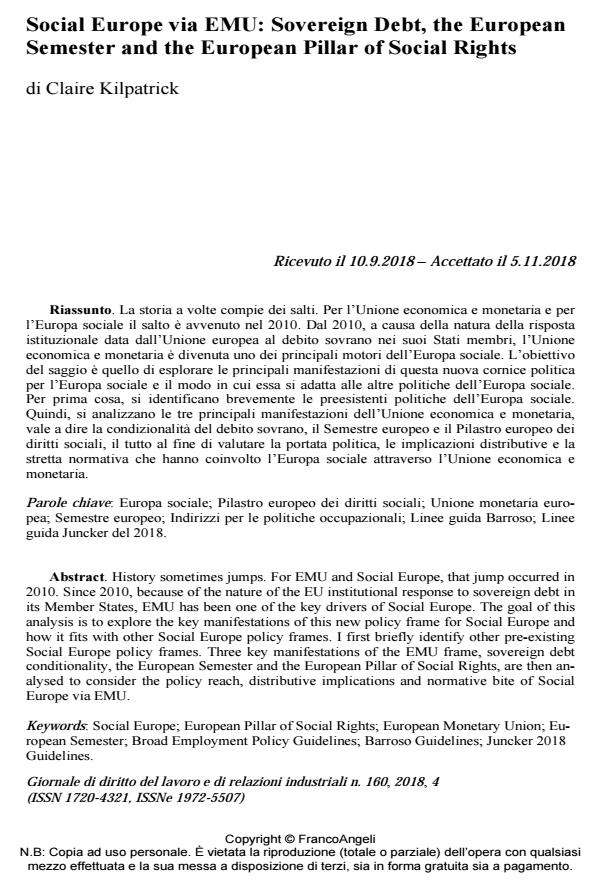Social Europe via EMU: Sovereign Debt, the European Semester and the European Pillar of Social Rights
Journal title GIORNALE DI DIRITTO DEL LAVORO E DI RELAZIONI INDUSTRIALI
Author/s Claire Kilpatrick
Publishing Year 2019 Issue 2018/160
Language English Pages 23 P. 737-759 File size 276 KB
DOI 10.3280/GDL2018-160003
DOI is like a bar code for intellectual property: to have more infomation
click here
Below, you can see the article first page
If you want to buy this article in PDF format, you can do it, following the instructions to buy download credits

FrancoAngeli is member of Publishers International Linking Association, Inc (PILA), a not-for-profit association which run the CrossRef service enabling links to and from online scholarly content.
History sometimes jumps. For EMU and Social Europe, that jump occurred in 2010. Since 2010, because of the nature of the EU institutional response to sovereign debt in its Member States, EMU has been one of the key drivers of Social Europe. The goal of this analysis is to explore the key manifestations of this new policy frame for Social Europe and how it fits with other Social Europe policy frames. I first briefly identify other pre-existing Social Europe policy frames. Three key manifestations of the EMU frame, sovereign debt conditionality, the European Semester and the European Pillar of Social Rights, are then analysed to consider the policy reach, distributive implications and normative bite of Social Europe via EMU.
Keywords: Social Europe; European Pillar of Social Rights; European Monetary Union; Eu-ropean Semester; Broad Employment Policy Guidelines; Barroso Guidelines; Juncker 2018 Guidelines
Claire Kilpatrick, Social Europe via EMU: Sovereign Debt, the European Semester and the European Pillar of Social Rights in "GIORNALE DI DIRITTO DEL LAVORO E DI RELAZIONI INDUSTRIALI " 160/2018, pp 737-759, DOI: 10.3280/GDL2018-160003